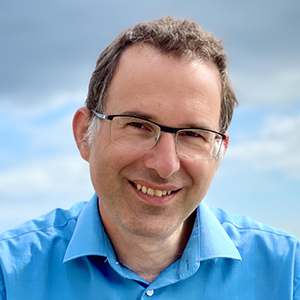General-Audience Article
Publication Types:
Rouw om de planeet: Leven met verlies in het antropoceen
Verdriet, angst, wanhoop, schuldgevoelens en woede: geconfronteerd met de klimaatcatastrofe spelen verschillende emoties op, maar die krijgen vooralsnog weinig plaats en erkenning in de samenleving. Kunstenaars en activisten ontwikkelen ondertussen rouwpraktijken. Die zijn niet zaligmakend, maar wel noodzakelijk om voorbij het collectieve ontwijkingsgedrag te geraken.
Putting the Anthropocene on Display: An Inspiration Guide
This working paper presents a multifaceted examination of four innovative impact projects that address the challenge of memorializing the Anthropocene, the new geological epoch characterized by massive human influence on the planet. Authored by four members of the “Transformation of the Environment” working group of the Slow Memory COST Action, it delves into diverse initiatives spanning the realms of art, museum curation, commemoration, and tourism. Each project offers a distinct and unique approach to getting the public to engage with the realities, complexities, and complicities of living in a time of climate and ecological crisis.
Stef Craps discusses a climate-themed guided tour of the Museum of Fine Arts Ghent in Belgium that aims to initiate conversations about environmental change among museum visitors by interpreting historical artworks as climate witnesses. Rick Crownshaw proposes a new methodology for exhibiting the Anthropocene that seeks to transform encyclopaedic museum spaces such as the Royal Albert Memorial Museum in Exeter, UK, into platforms for public reflection and education on humanity’s role in shaping planetary systems. Deniz Gündoğan İbrişim explores the Gümüşlük Academy Foundation’s “Garden” in Turkey’s ancient Aegean region, which serves as a nexus for interdisciplinary dialogue on the socio-environmental challenges of the Anthropocene. Finally, Jenny Wüstenberg introduces the MEMO Project’s ambitious endeavour to commemorate extinct species and foster biodiversity awareness through an immersive underground experience at the Eden Portland site on England’s Jurassic Coast, assisted by a mobile app that allows users to engage with this remote site from wherever they find themselves.
Together, these projects exemplify a variety of ways to put the Anthropocene on display that, we hope, will inspire other memory scholars and practitioners to develop novel creative practices of engagement with our environmental predicament.
Literatuur is een krachtig middel om aandacht te vragen voor de ongelijke gevolgen van de klimaatcrisis
Groene geesten: De humanities en de klimaatcrisis
Even voorstellen: Ursula Heise
Een Maus in de koolmijn
Literatuur en klimaathoop
Introduction to Octavia Butler’s Parable of the Sower
Fragment 95 and commentary for hand-written lockdown edition of Max Havelaar by Multatuli
Poëtisch verzet tegen de teloorgang van de natuur
Leestip: Verloren woorden van Robert Macfarlane en Jackie Morris, vertaald door Bibi Dumon Tak.
Testimony for #WeChangeForLife
Op wandel met Guido in Leuven, Gent en Ieper
Klimaatfictie in de Lage Landen?
Met het water al bijna aan de lippen vragen Stef Craps en Mahlu Mertens zich af of de klimaatopwarming Nederlandstalige fictieschrijvers niet een beetje te koud laat.
De verbeelding van het Antropoceen
Het Antropoceen is geen puur geologische aangelegenheid. Het concept mag dan wel uit de koker van “harde” wetenschappers zijn ontsproten; het zorgt ook voor grote bedrijvigheid bij “zachte” wetenschappers en cultuurmakers. Zij worstelen met de morele en existentiële vragen die het tijdperk van de mens oproept.
